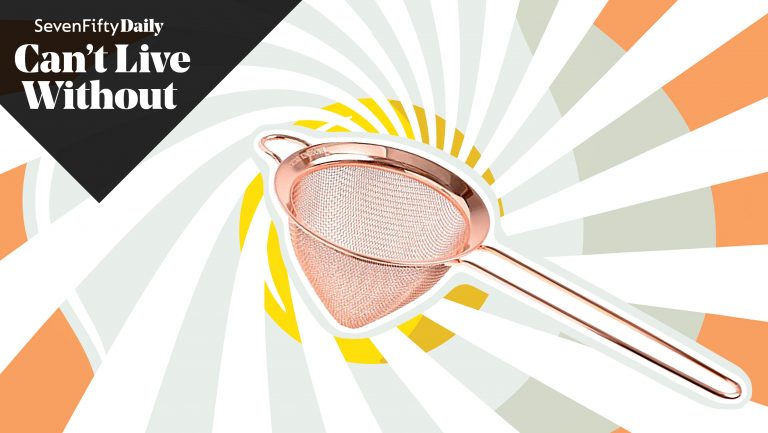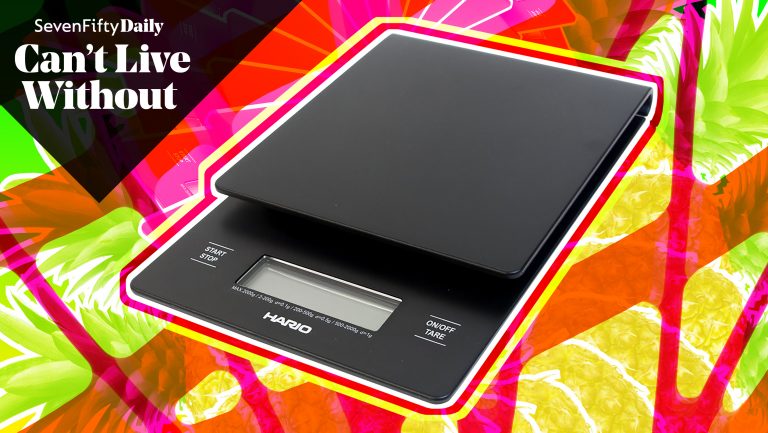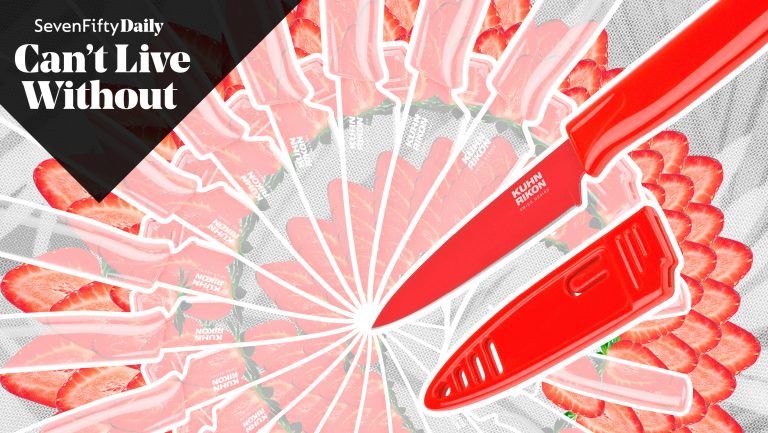A curious gadget with a Willy Wonka–esque name has been popping up on bartenders’ Instagram feeds in recent weeks. The Spinzall is a centrifuge, but with a price tag and size developed specifically for the bar and kitchen, compared to the sprawling, costly versions made for laboratory use. The device is the work of Dave Arnold, an industry authority known for adapting laboratory techniques and equipment for use behind the bar. (Arnold’s book, Liquid Intelligence, outlined many of these scientific principles, and those techniques were frequently on display at his now-closed New York bar, Booker & Dax.)
In the last several years, the centrifuge has traveled from the lab to the bar as bartenders have realized the potential in a machine that can perform high-yield, crystal-clear clarification. Quick throwback to high school chemistry class: a centrifuge uses ultra-fast rotation, resulting in centrifugal force, to separate substances of different densities, like liquids from solids. Last year, Arnold and his Booker & Dax collaborators kicked off a crowdfunding campaign for the Spinzall, which promised all the benefits a centrifuge can bring to the bar without the steep(er) investment, difficult learning curve, or prohibitive space requirements or a laboratory-grade centrifuge. “For years, I’ve been using centrifuges in the bar,” says Arnold, “and I just thought it was a shame that more bars couldn’t use the technique.” The campaign ended just shy of its $699,999 goal, but the team moved forward with production, and the inaugural batch of orders for early backers has been shipping out since mid-September. The Spinzall is currently available for preorder, and according to Arnold, an additional 700 units will be available on Amazon at some point this November.
Centrifuges are not only costly, Arnold explains, but they take up valuable kitchen space and they’re difficult to repair quickly (and far too pricey for most establishments to obtain a second one for backup). He sees the Spinzall as a way for centrifugal technology to become more accessible throughout the industry—perhaps along the lines of how the popular Instant Pot brought pressure cooking, once seen as an intimidating culinary technique, into more home kitchens. “Our favorite thing to say is that we’re not trying to change the way you drink, we’re trying to change the way we make drinks,” Arnold says. “I could imagine this being useful for a whole range of bars that aren’t even thinking about this kind of technology.”

Don’t miss the latest drinks industry news and insights. Sign up for our award-winning newsletters and get insider intel, resources, and trends delivered to your inbox every week.
The Spinzall, he maintains, isn’t just for wacky, mad-scientist bartenders. It can increase yield—and thus, reduce cost—when making juices or syrups, ensure more consistent flavors in drinks, and even help maintain the bubbles in carbonated cocktails, thanks to the properties of clarified lime juice.
The Spinzall’s early adopters are only just beginning to experiment with the device and explore the possibilities. Luis Hernandez, head bartender at Seamstress in New York, says he plans to use the Spinzall for fat-washing, a method of using cooking fats to infuse spirits with flavor and viscosity—in Hernandez’s case, a brown butter and hazelnut-washed rye whiskey. “We are also going to be working on [clarifying] milk punches, and making clear sugar glass for our summer menu,” Hernandez adds. Derek Brumfield, head bartender at New Orleans’ The Mayhaw, says he plans to implement the Spinzall behind the bar at two new venues he’s helping to open in coming months. One of the venues will feature a rotating list of five carbonated, bottled cocktails, and Brumfield plans to use the centrifuge to clarify juices for those drinks. Stephen Kurpinsky of George’s at the Cove in La Jolla, California, says he also intends to use the Spinzall primarily to clarify juice, adding that he was inspired by a stirred mezcal cocktail made with clarified lime and grapefruit juices once served to him at Booker & Dax. “It was as bright and vibrant as a sour,” he says, “but had that heavier mouthfeel of a stirred drink.”
Arnold concedes that the Spinzall isn’t a magic bullet for every bar: the $800 price tag, while inexpensive compared to lab equipment, can be tough for a small startup business to swallow, and a very busy high-volume bar working with far larger quantities may be better suited for different equipment, like the Superbag. But for bars that could benefit from having a centrifuge on-premise, the Spinzall could be a good way to dip a toe in the waters without the risk of a $10,000 investment—and for a bar manager, it’s a much easier sell, Arnold says. “Right now, how the heck is a bar manager going to convince their chef, who’s probably doing the purchasing, to buy a $10,000 piece of equipment that’s going to take up a bunch of space in the kitchen?” He adds that an $800 unit that fits in a smaller space and can be operated by a barback is far easier to justify. “That’s what I kind of want out of this,” he says. “I want people to use the techniques more, and in order to do that, there needs to be a centrifuge that’s reasonable to offer.”

Dispatch
Sign up for our award-winning newsletter
Don’t miss the latest drinks industry news and insights—delivered to your inbox every week.
Gray Chapman is an Atlanta-based journalist who writes about spirits, beauty, and culture; she was formerly the managing editor of Tales of the Cocktail. Follow her on Twitter.







